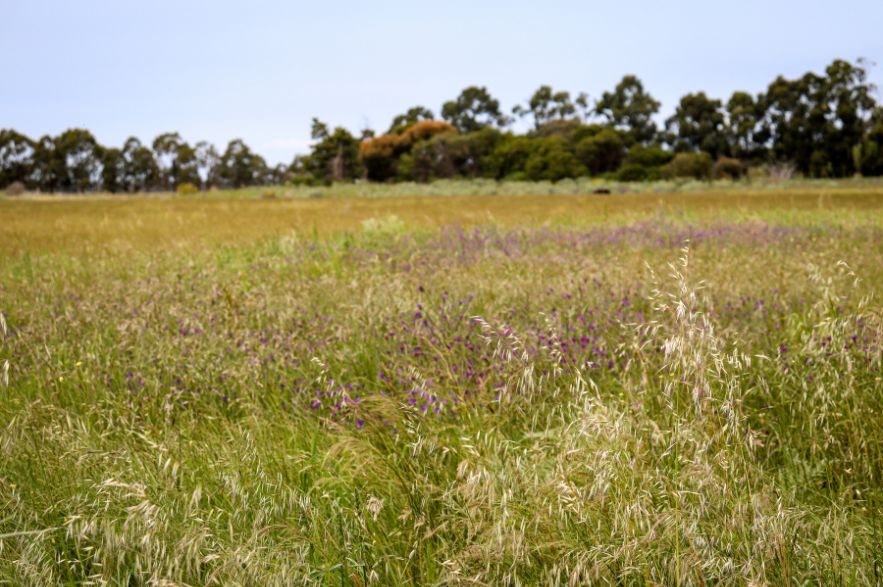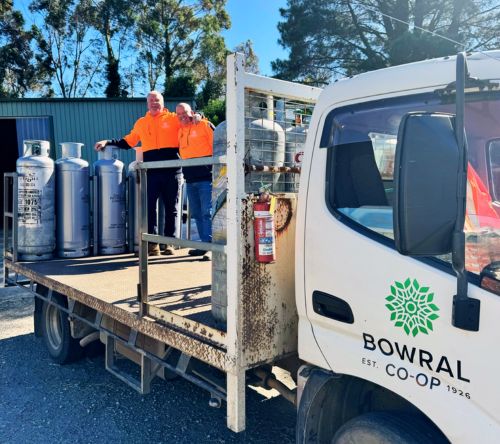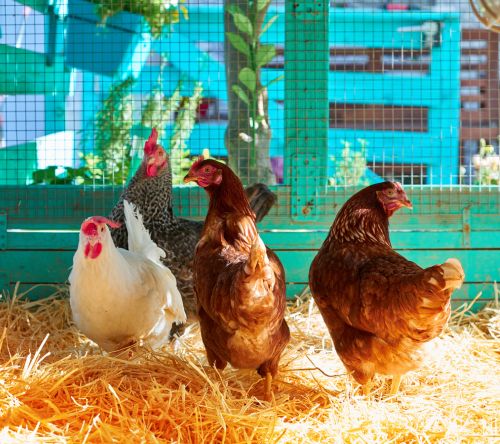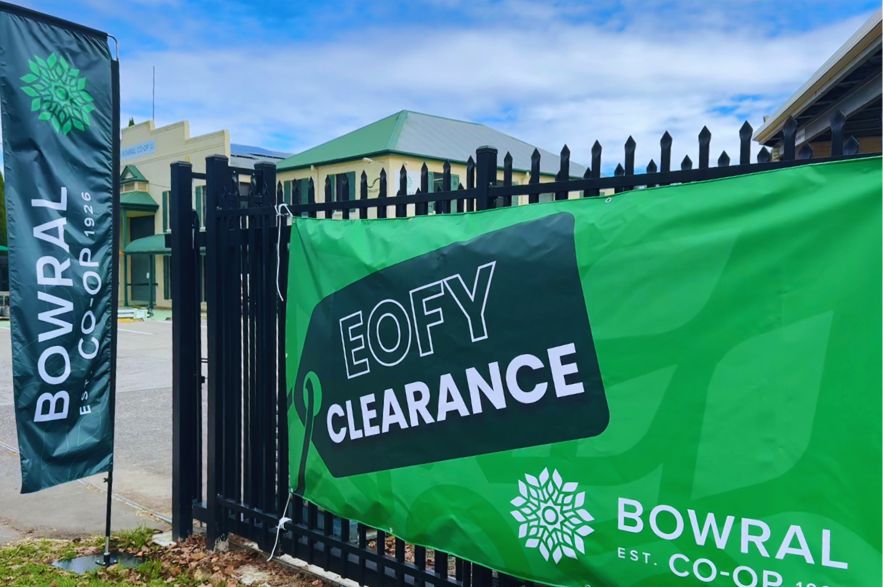Knockdown herbicides, also known as non-selective herbicides, are designed to eliminate most weeds they come into contact with.
Unlike residual herbicides that act on germinating seeds or roots, knockdown herbicides affect the parts of the weed that are above ground, leading to a rapid decline in weed populations.
This characteristic makes them particularly useful for clearing paddocks of weeds prior to sowing a pasture or crop.
The two main HERBICIDE choices
‘Glyphosates’ are systemic herbicides that are effective against a wide range of annual and perennial weeds, both broadleaf and grasses. They’re particularly useful in situations where comprehensive weed control is needed.
Because glyphosate needs to be translocated within the plant to affect a biochemical pathway that leads to gradual depletion of essential growth compounds, its effects are not immediate.
The visible symptoms of plant distress (yellowing, wilting, and eventually death) can take several days to weeks to appear, depending on the plant species, the size of the weed, environmental conditions, and the rate of herbicide application.
‘Diquat/Paraquats’ differ in that they are contact herbicides that provide rapid action and are very effective for burning down green vegetation rapidly. This makes them suitable for use in situations where a quick weed kill is necessary, such as shortly before planting.
As contact herbicides, paraquat and diquat do not rely on systemic movement within the plant and do not specifically inhibit a biochemical pathway. Instead, they cause immediate damage to the cell structures of the foliage they contact. This leads to visible symptoms of plant distress and death within hours to a few days after application, which is significantly faster than systemic herbicides like glyphosate.
Double knock strategies
Double knock strategies are critical to reducing weed seed banks.
The ‘double knock’ strategy typically starts with the application of a knockdown herbicide as the first ‘knock’. This initial application targets the majority of the weed population, reducing its density and vigour.
Shortly thereafter, a second ‘knock’ follows, which may involve another herbicide application with a different mode of action, mechanical weed control methods such as tilling, heavy grazing, or a combination thereof.
This sequential attack ensures any weeds that survived the first treatment or are emerging, are controlled, thereby minimising the chance of weed survival and reproduction.
The ‘double knock’ strategy is a valuable addition to the weed management toolkit, offering enhanced control of resistant and difficult-to-manage weed species.
When integrated into pre-sowing preparations, it provides a robust foundation for crop establishment and productivity.
Its success, however, hinges on strategic planning, careful selection of control methods, and consideration of environmental and regulatory factors.
By employing a ‘double knock’ approach, we can achieve a ‘cleaner’ start to the season, paving the way for higher yields and more sustainable farming practices.
The role of ‘spikes’
To enhance the efficacy of knockdown herbicides, we often recommend the use of ‘spikes’.
Spikes involve adding a specific herbicide knockdown mixture to target particular weed species that are less sensitive to the standard knockdown herbicide.
This tailored approach ensures a broader spectrum of control, making it a vital strategy in integrated weed management programs.
The choice of spike is based on several factors including the predominant weed species present, the size of the weed.
Broadleaf weed spectrum on commonly used knockdown spikes
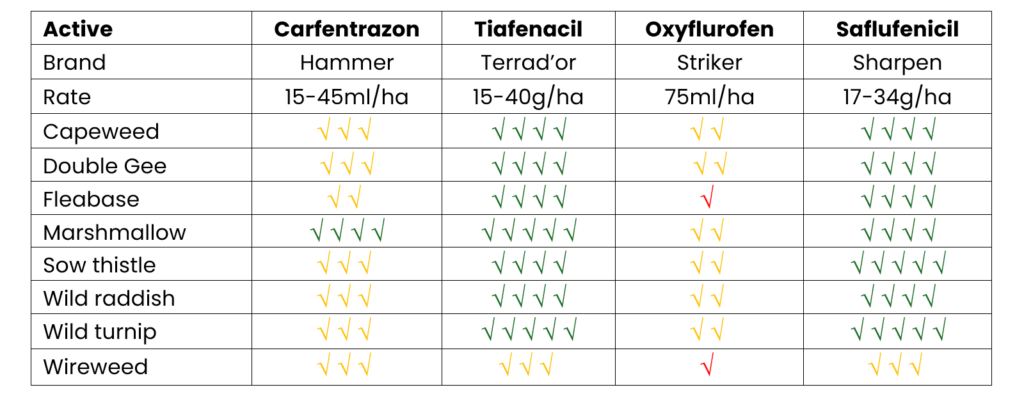
For more information on your pre-sowing knockdowns choices, including double knock strategies and spikes call Will Black at the Bowral Co-op today.

